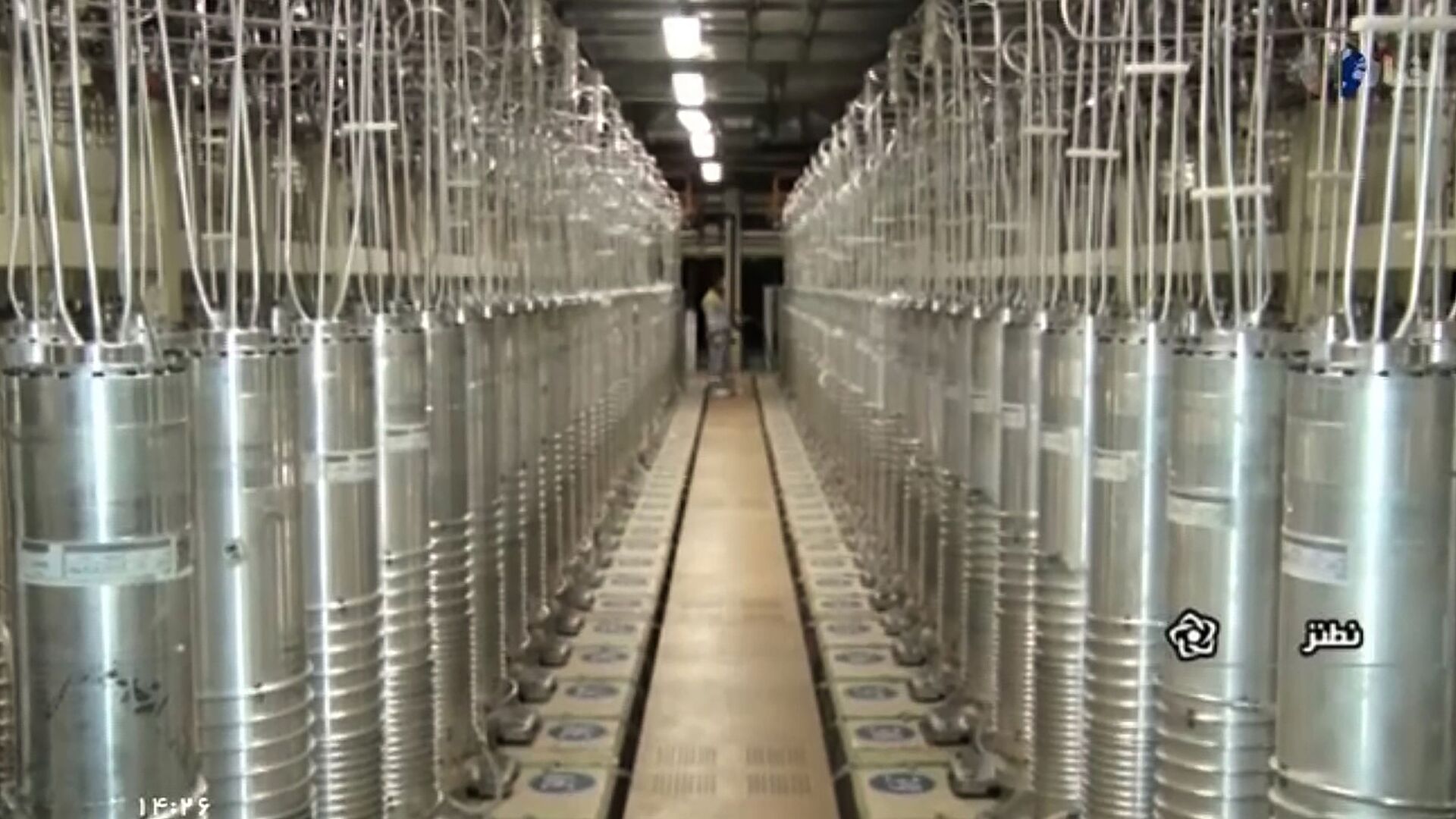https://sputnikglobe.com/20220513/israeli-adviser-israel-uninterested-in-military-solution-to-nuke-concerns-with-iran-1095478935.html
Israeli Adviser: Israel Uninterested in Military 'Solution' to Nuke Concerns With Iran
Israeli Adviser: Israel Uninterested in Military 'Solution' to Nuke Concerns With Iran
Sputnik International
The 2015 Joint Comprehensive Plan of Action (JCPOA) was an agreement between the Islamic Republic of Iran and the P5+1 that would allow Iran to free itself of... 13.05.2022, Sputnik International
2022-05-13T04:20+0000
2022-05-13T04:20+0000
2023-07-31T16:59+0000
iran deal
us
israel
iran nuclear deal
https://cdn1.img.sputnikglobe.com/img/07e5/07/0e/1083382354_0:74:3377:1974_1920x0_80_0_0_26e1adfd0de6daed2973ada1acddee8e.jpg
Israeli National Security Adviser Eyal Hulata reportedly commented on Thursday that Israel is not interested in a military conflict in order to resolve its issues with Iran’s nuclear program, underscoring that it is also not seeking to involve the US in any potential dispute.“We think the issue can be solved in other ways,” said Hulata in reference to Iran’s nuclear program. “We believe it can.”Although with little support from Congress, revival of the Iran nuclear deal appears unlikely. The Biden administration has already begun discussing alternatives to reviving the 2015 deal, which was initially struck under the Obama administration. “We want a longer and stronger deal,” Sen. Cory Booker (D-N.J.) earlier said when asked why he supported the measure. “[I want] the best deal possible that secures the region and prevents Iran from having a nuclear weapon.”On Tuesday, the UN atomic energy watchdog chief said he is “extremely concerned” about Iran’s noncompliance with nuclear regulation rules.“I am referring to the fact that we, in the last few months, were able to identify traces of enriched uranium in places that had never been declared by Iran as places where any activity was taking place,” said Rafael Grossi, head of the International Atomic Energy Agency (IAEA).Israeli Prime Minister Naftali Bennett has also spoken out about the possible renewal of Iran’s nuclear deal, saying it would lead to a “more violent” Middle East. Israel continues to urge the P5+1 countries - and particularly the West - to implement stricter regulations against Iran before negotiating any further.The JCPOA stalled out following the United States’ refusal to remove Islamic Revolutionary Guard Corps from the US terror list, among other negotiation hiccups. US Secretary of State Antony Blinken has more recently stated that he's “not overly optimistic” the nuclear deal will be signed following the Biden Administration’s refusal to comply with Iran's requests.In 2018, former President Donald Trump pulled the US out of the Iran nuclear deal after alleging that Tehran had been breaking stipulations outlined under the 2015 agreement. In response, Iran has dropped its promises to regulate its nuclear program, instead opting to increase their uranium enrichment.
israel
Sputnik International
feedback@sputniknews.com
+74956456601
MIA „Rossiya Segodnya“
2022
News
en_EN
Sputnik International
feedback@sputniknews.com
+74956456601
MIA „Rossiya Segodnya“
Sputnik International
feedback@sputniknews.com
+74956456601
MIA „Rossiya Segodnya“
iran deal, us, israel, iran nuclear deal
iran deal, us, israel, iran nuclear deal
Israeli Adviser: Israel Uninterested in Military 'Solution' to Nuke Concerns With Iran
04:20 GMT 13.05.2022 (Updated: 16:59 GMT 31.07.2023) The 2015 Joint Comprehensive Plan of Action (JCPOA) was an agreement between the Islamic Republic of Iran and the P5+1 that would allow Iran to free itself of strict economic sanctions so long as they complied with rules limiting their nuclear program.
Israeli National Security Adviser Eyal Hulata reportedly commented on Thursday that Israel is not interested in a military conflict in order to resolve its issues with Iran’s nuclear program, underscoring that it is also not seeking to involve the US in any potential dispute.
“We are not looking for a confrontation with Iran— we don’t consider that to be a solution,” Hulata said during a closed conference at Tel Aviv University. He added that Israel does not want to “drag” the US into a military conflict.
“We think the issue can be solved in other ways,” said Hulata in reference to Iran’s nuclear program. “We believe it can.”
Although with little support from
Congress, revival of the Iran nuclear deal appears unlikely. The Biden administration has already begun discussing alternatives to reviving the 2015 deal, which was initially struck under the Obama administration.
“We want a longer and stronger deal,” Sen. Cory Booker (D-N.J.) earlier said when asked why he supported the measure. “[I want] the best deal possible that secures the region and prevents Iran from having a nuclear weapon.”
On Tuesday, the UN atomic energy watchdog chief said he is “extremely concerned” about Iran’s noncompliance with nuclear regulation rules. “I am referring to the fact that we, in the last few months, were able to identify traces of enriched uranium in places that had never been declared by Iran as places where any activity was taking place,” said Rafael Grossi, head of the International Atomic Energy Agency (IAEA).
“The situation does not look very good. Iran, for the time being, has not been forthcoming in the kind of information we need from them… We are extremely concerned about this,” he added.
Israeli Prime Minister Naftali Bennett has also spoken out about the possible renewal of Iran’s nuclear deal, saying it would lead to a “more violent” Middle East. Israel continues to urge the P5+1 countries - and particularly the West - to implement stricter regulations against Iran before negotiating any further.
The JCPOA stalled out following the United States’
refusal to remove Islamic Revolutionary Guard Corps from the US terror list, among other negotiation hiccups. US Secretary of State Antony Blinken has more recently stated that he's “not overly optimistic” the nuclear deal will be signed following the Biden Administration’s refusal to comply with Iran's requests.
In 2018, former President Donald Trump pulled the US out of the Iran nuclear deal after alleging that Tehran had been breaking stipulations outlined under the 2015 agreement. In response,
Iran has dropped its promises to regulate its nuclear program, instead opting to increase their uranium enrichment.

